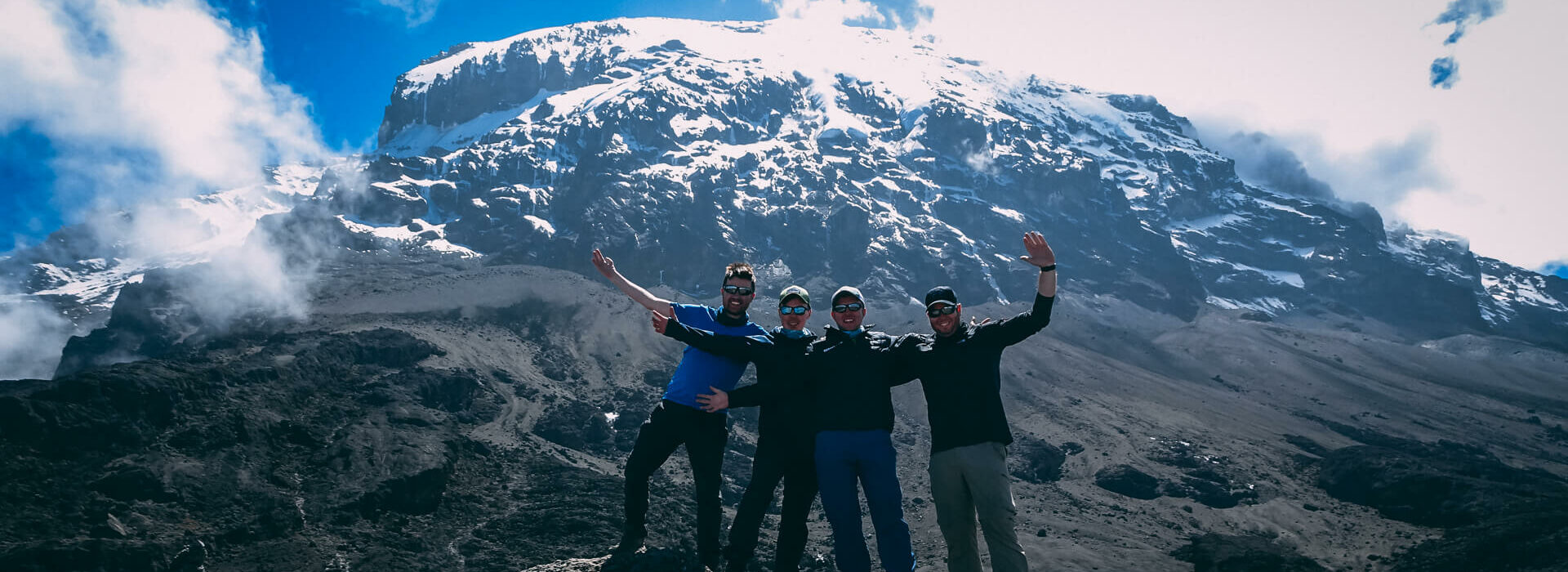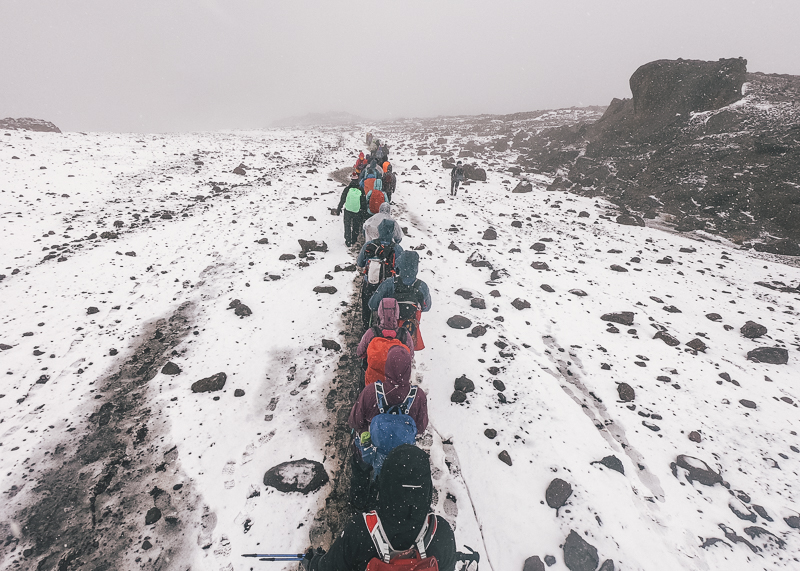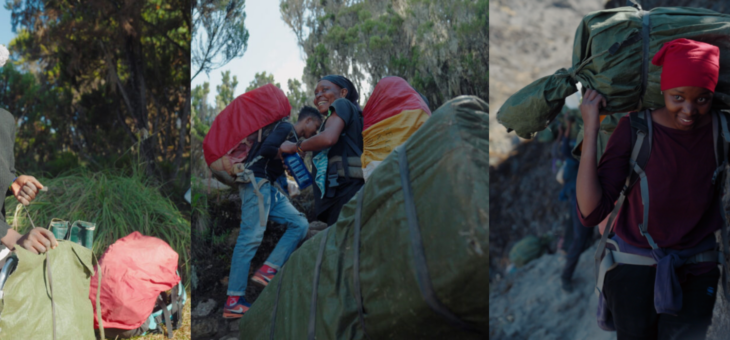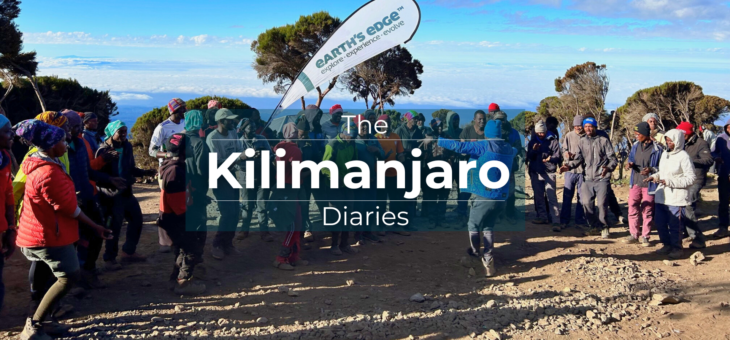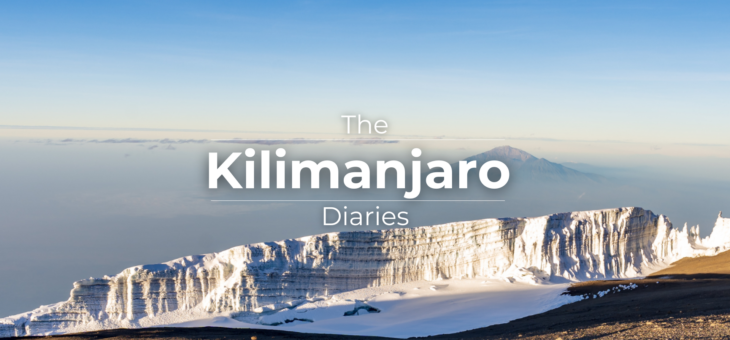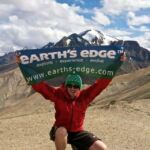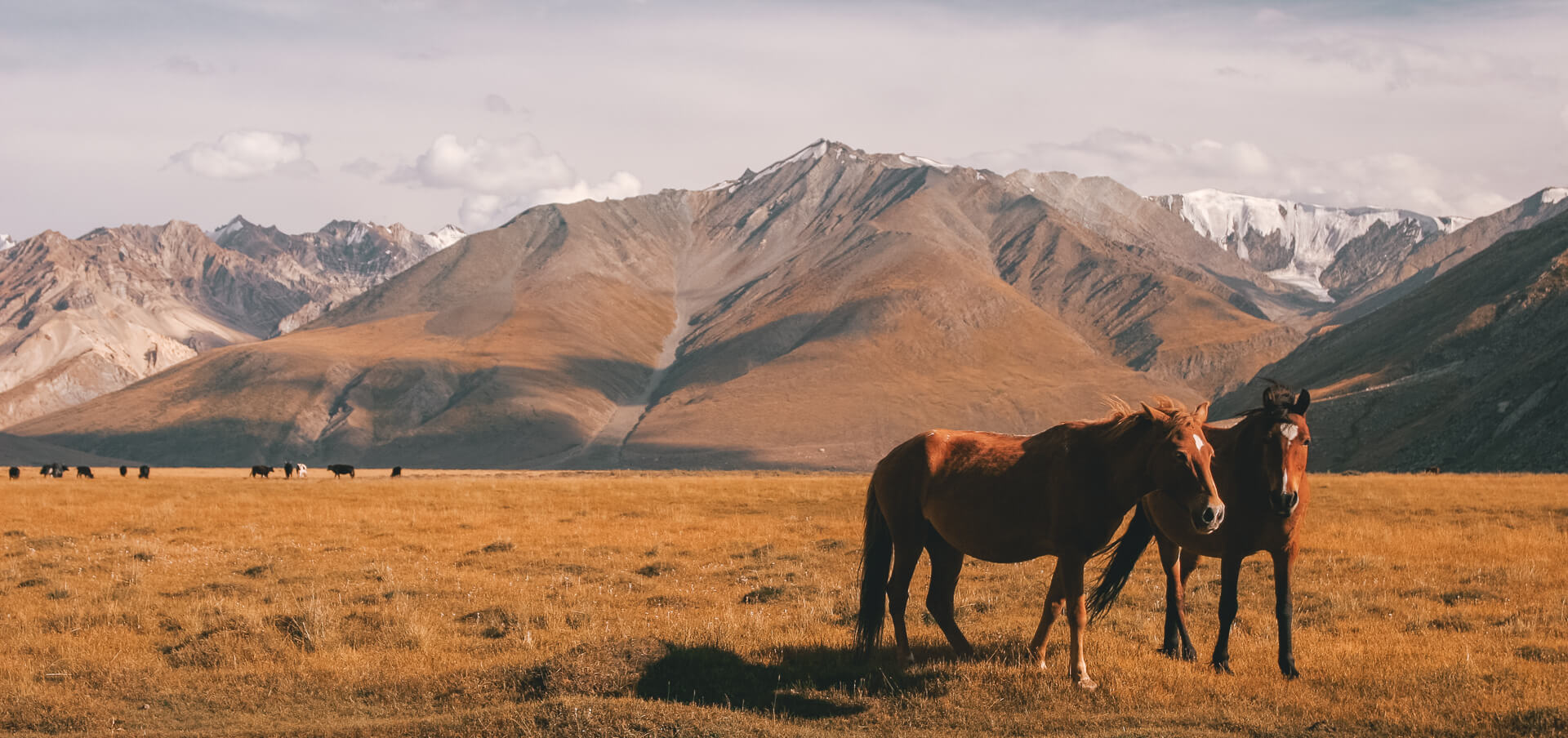Training for Kilimanjaro – Do I need to be an Olympic athlete?
Being in shape and training for Kilimanjaro is obviously very important but it’s not the only factor to think about. A better question to ask is how prepared are you to climb the tallest mountain in Africa? There is more than one element you need to consider to be ready for your climb up Kilimanjaro. These elements include training, equipment, planning, and nutrition.
Preparation before trekking Kilimanjaro
Do your research about where you are going and what route you are on. See what gear you need rather than taking piles of unnecessary stuff. Make sure you know what you have and how to use it. There’s no point in bringing something that ‘might’ be useful. Test it out on a training hike. If it annoys you at home, it’ll annoy you on Kili.
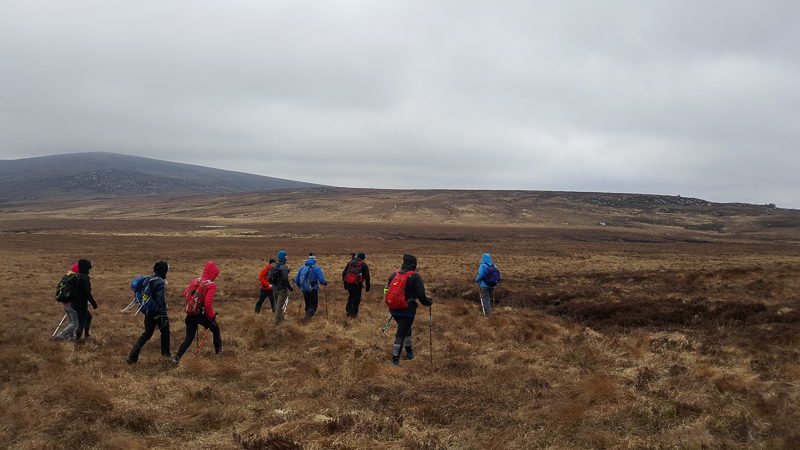
What gear to get for Kilimanjaro
When buying boots make sure that you break them in before coming on the mountain. You don’t want to be breaking them in while on the mountain as this could lead to blisters and a miserable hike.
Walking poles are also a good thing to have on the trip especially for summit night and also the descent. It’s also good to have a fair idea of how to measure them to your height. Make sure you get out on the hills and get used to walking with them as they do take a little practice.
A good fitted day back that has support on the hips and shoulders is a must as it will make it more conformable throughout. If you’re confused about how to get these items correctly measured, go to a good outdoor shop and they will be able to help. Shops like The Great Outdoors and 53 Degrees North are both great and will gladly help out.
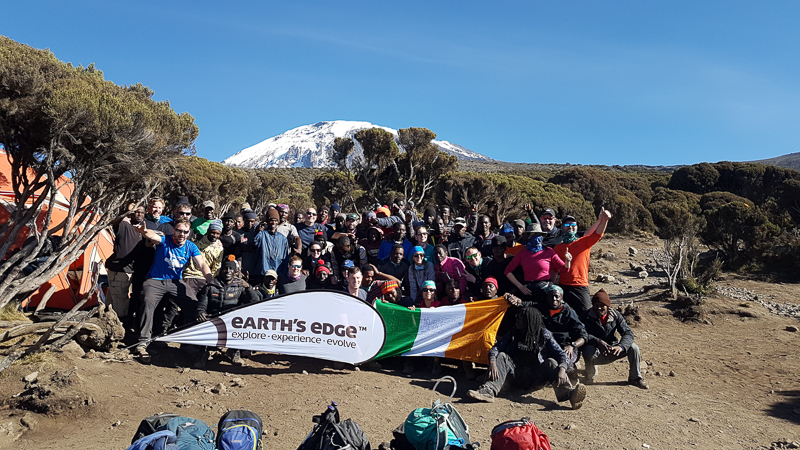
Training for the body and mind
For any big challenge, it’s also good to be prepared and ready for it mentally and physically. Kilimanjaro is a ‘big mountain’ and has its elements of danger like any other adventure.
Hiking Kilimanjaro is graded “strenuous” and you need to be in good physical shape and have some experience of multi-day treks. Good quality mountain days over different types of terrains is key before your hike up Kilimanjaro.
Most of the days involve between five to seven hours of walking at a ‘pole pole’ speed and at altitude. Summit day is a very strenuous night/day with most of the walking taking around 15-18hrs. This includes getting back down to high camp and back down to Millennium Camp, so it’s a long day! Even for the fittest people, the high altitude still makes this a tough hike.
The most challenging part of the whole trek is summit night, so it’s good to be prepared mentally for it. You gain quite a lot of height on summit night and the majority of people will suffer from mild acute mountain sickness. This can make the trek a lot tougher on the body and mind. If you are an average hill walker and get out every week two months in advance would be a perfect time to start mentally preparing yourself for Kilimanjaro.
We put together a few hikes to help you train for Kilimanjaro. They are all Wicklow hikes since we’re based in Dublin, so have a look at these routes!
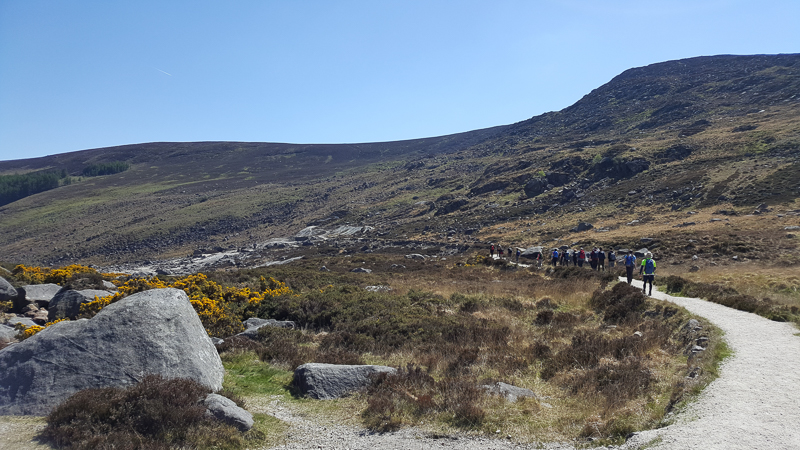
Planning your training
If you don’t do physical exercise most weeks and are planning on doing the trek, you need to start a training plan months before you go. It is important to start the training slowly and work your way up to a solid level of fitness which will put you in a good position to enjoy the trek without overexertion. Working out about two to three times a week an average of 30-40minutes working on different elements, endurance, cardio and also strength. The more training you do the more it will stand to you on the mountain, especially on summit night, which is where you will need it the most.
Acclimatisation on the Machame Route
When you arrive into each of the camps, try if possible not to just head for a nap. Go for a walk around the camp and get used to the altitude and see how it feels. It is also very important to have a day where you get to acclimatize properly. Lava tower on the Machame Route is the best place as you go from 3800mts Shira camp to 4630mts. We stop here for a few hours, eat a hot lunch, and get used to the height. You may feel some degree of altitude sickness here. Some get a headache, some feel completely zapped of energy, and some feel just fine! The best medicine for altitude sickness is to get down to a lower altitude and this is what we do. We descend pretty quickly to Barranco camp which is at a lovely 3950mtrs.
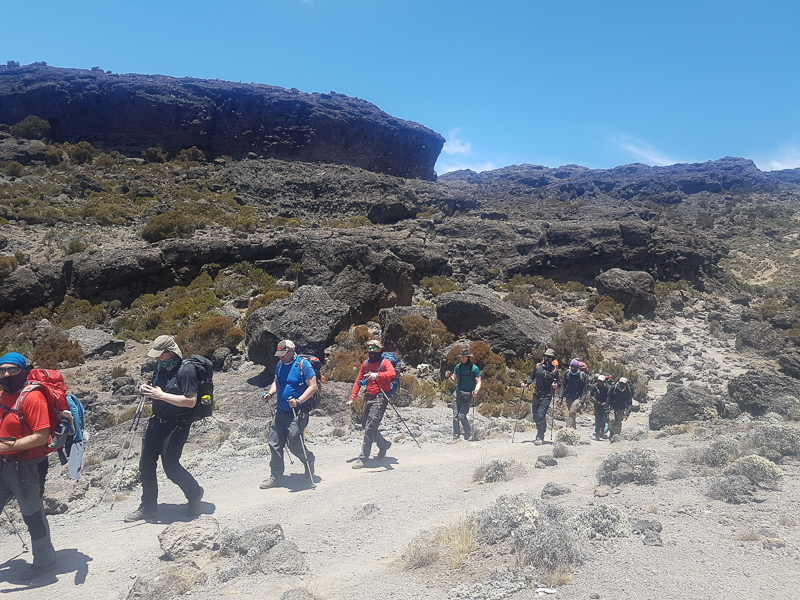
Hydration and nutrition
Like everything food and water are just as important when you are hiking Kilimanjaro. It’s important to have enough fuel and water to keep you going for the whole day. You need at least three litres of water during the day to help with acclimatisation and general hydration. The food on the mountain is excellent and there’s plenty of it. If you still have an appetite then you need to eat as much as you can when you can. Snacks are also important on Kilimanjaro, you never want to be hungry while hiking but grazing throughout the day. We put together a guide on how to eat before, during, and after an expedition if you’re interested in reading up on it!
Walking “Pole Pole”
On the mountain these are the words that will echo across the trial, ‘Pole Pole’ which translate to ‘Slowly Slowly’. To make it to Uhuru Peak the key is to go slowly. This allows your body to properly acclimatize to the height and give you the best chance to summit the peak. Make sure you listen to the local guides when they are giving you advice on the mountain. Walking slowly sounds like something that we all know how to do, but you’d be surprised! We have a blog post all about it called The Art of Walking Slowly!
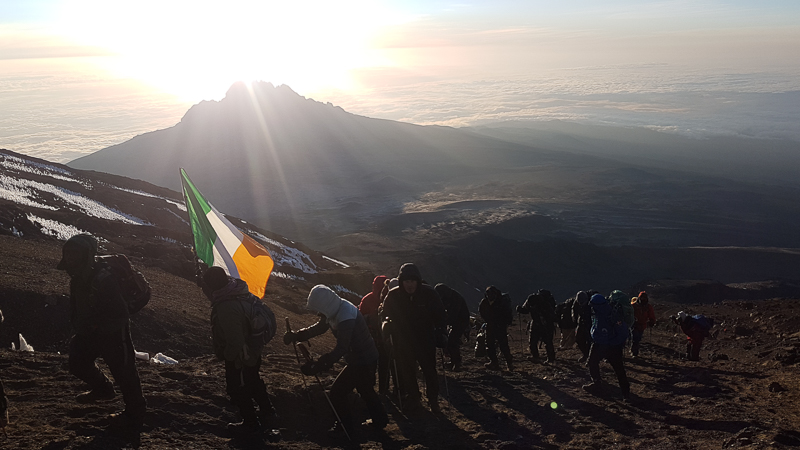
Getting to the summit of Kilimanjaro is one of the most amazing feelings and it’s one you’ll want to remember. If you follow a training plan and listen to the local guides you should reach the summit. Pay attention to your pace, food and hydration, and cleanliness, and summit day will be one you won’t forget!
If you want to have your own Kilimanjaro adventure remember you can contact us for more information!
